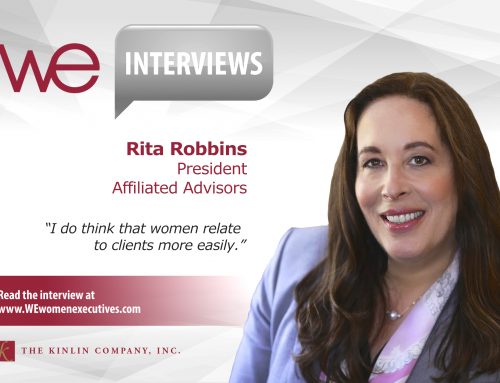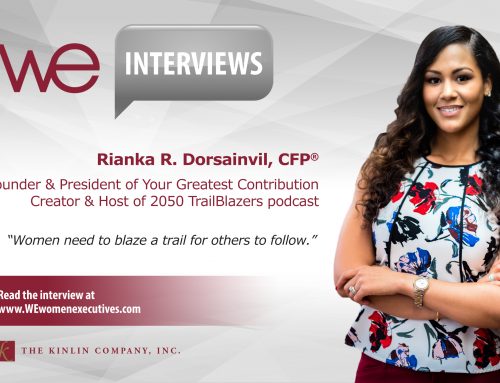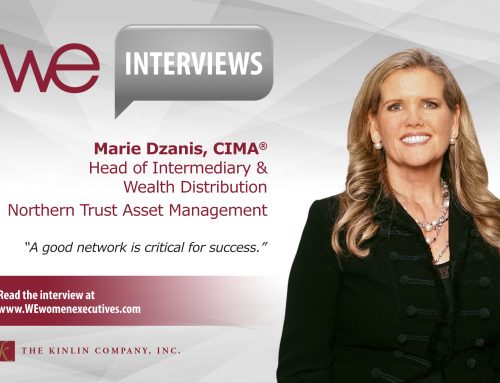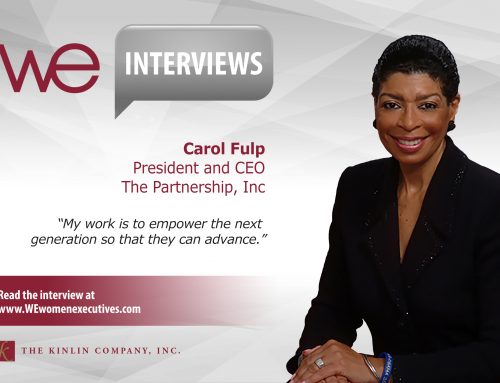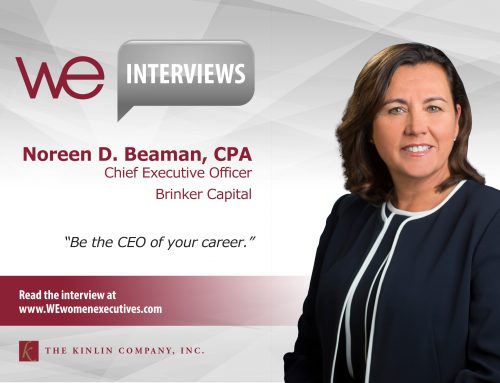 Judy Rice
Judy Rice
Chief Diversity Officer
Prudential Investment Management
As Chief Diversity Officer for Prudential Investment Management, Judy Rice is focused on giving back, both to a company that she feels has given her a great deal and to other women seeking to advance their careers in asset management.
Although Rice has been with Prudential Investment Management for nearly two decades, she is relatively new to the position of chief diversity officer, having served in this capacity for approximately 18 months. Prior to that time, Rice served in a variety of roles at the company, most recently as the president, chief executive officer and officer-in-charge of Prudential Mutual Fund Services LLC.
In 2011, Rice announced her plans to retire, but when she did, she received so many meeting requests from women across the organization—from different businesses and at different levels—that she realized there was work yet to be done.
I recently had the privilege of sitting down and speaking with her about the distinguished career she has already enjoyed as well as the challenges and opportunities she foresees in this newest phase of her professional life.
A passion for diversity
Long acknowledged as a leader in financial services, Rice ranks among the investment industry’s most influential executives and has repeatedly been recognized for her commitment to promoting diversity in this sector. In 2013, the National Association for Female Executives named her a “Women of Excellence’ award recipient in the ‘Activist’ category. I began our conversation by asking her what fueled this dedication to a diversified workforce.
“I have always had a passion for supporting women in more senior roles in the workplace. When I was president of the mutual fund business for Prudential, I had men and women in senior roles reporting directly to me, and I found that the mix made our dialogue livelier. It’s important to have people who can look at problems and issues through different lenses; the conversations are richer when you have a diversity of perspectives in an organization.
“If you look at the financial services companies right now, you really need to have a global perspective because they’re global companies, and you can no longer house all of your talent at headquarters. At Prudential Financial, for example, more than 60 percent of our employees and 50 percent of our revenues are outside the U.S., and we operate in 37 countries. You need to have a global workforce to better understand the clients and the markets you serve. If you’re a firm that wants to attract and retain the best talent, you need people from all different backgrounds and experiences. Diversity of thought leads to a culture of inclusion and that in turn leads to innovation. If you have people that think like you and act like you, I don’t think you’re going to get to the best outcome. So our primary goal is to increase diversity representation in our most senior ranks as well as build a pipeline of junior leaders.
“When I announced my retirement, I began getting all these requests for meetings from women from across the organization, and the questions they asked were very interesting. Some of them related to work-life balance, because they knew that I had a family, but many of them were questions about navigating through the company, and I saw a theme emerging. I could have gone ahead and retired or perhaps gone onto some sort of board, but I felt like the position of chief diversity officer would be a great opportunity for me to focus, give back to a company that’s given me a great deal and help other women.
“At the time I was working with David Hunt, the new CEO of Prudential Investment Management, who had just joined from McKinsey, and I said, ‘You know, it would be great if we polled people within the asset management group, because when we were looking at asset management as an industry, our numbers look pretty good. But the investment industry as a whole does not look good as it relates to senior women in senior positions.
“So I set up an advisory council with a number of other senior women within asset management and asked, ‘Is there more that we could be doing to help the junior women within the organization and also help senior women become part of the succession planning within the organization?’ Then I ran a huge networking session for all the senior women and collected a lot of feedback in terms of what was on their minds, what was preventing them from moving ahead in terms of the organization, etc.
“We have eight separate businesses within asset management and the feedback we got was this: ‘We need more networking and ways to get to know women within other parts of the asset management organization.’ They were also looking for more external networking, connections with other organizations that could help them with their career mindset, and additional training in areas like P&L and presentation skills.
“Women often hear that they don’t have the executive presence, and most don’t know what that means. They think it’s clothing–how they dress, how they look—but there’s also an inner quality in terms of what other people are looking for in establishing executive presence. I find most women don’t really understand this unless you go through things with them one-on-one. So some women were looking for soft skills while others were seeking more hard core skills. I felt like I could help.”
A seat at the table
There’s no disputing that Rice has mastered the fine art of establishing an executive presence, and she has also clearly learned to navigate successfully in a male-dominated work environment. I asked her if she had run up against any stone walls over the course of her career and if so, how she had maneuvered around them.
“I’ve been very fortunate in my career because of a combination of luck and personal behavior. I started in financial services when I was 19 years old, and while asset management has historically been a male-dominated culture, I’ve been able to make it work for me.
“Most of the men I worked for pushed me hard to reach my potential. I wasn’t the most assertive person in the room, but I always had a seat at the table, and I found that when they’d go around the room and ask for opinions, mine was very much valued because I was the only woman in senior management. I didn’t have a loud voice, but when I did speak, people listened. They would often ask for my opinion because they knew that I would have a different perspective and they valued what I had to say. So when there was a question about what was really on employees’ minds or if there was a new policy that they wanted to introduce, for example, they would say, ‘Judy, what do you think about that? How do you think that the employees would feel about that? Would that inspire them? Would it give them incentive?’
“Trends are changing. Today, we have more female CEOs running major companies like IBM and GM and research telling us that when boards have more women, sales increase and return on invested capital goes up. Rather than gender bias, what I see is more of an unconscious bias, which we’re all guilty of in some form. For example, we tend to hire people who look and think like us. We need to be aware of the places where this unconscious bias exists in order to produce better outcomes.”
An ability to create value
As we talked more about the importance of one’s behavior and its impact on outcomes, my thoughts kept returning to Rice’s observation that she had made herself valuable as a contributing member of the senior management team. What exactly had she done, I inquired, to create this value?
“I acted with a real purity of purpose at heart. I never actually planned out my career; my objective was always to make the person that I was working with the best that he or she could be, so I was always helping them with whatever they needed to accomplish their goals.
“As a result, I built a lot of trust and credibility with bosses over the years—they never felt that I was out to take their job. I wanted them to understand that I was in my job because I wanted to be the best that I could be in that job and help them be the best that they could be. It’s essentially about establishing trust and credibility with the person that you’re working with, and if you can establish that, you can get by all of the other biases that exist.
“I was also working 24/7. People knew my reputation–I was always the one to say ‘I’ll take that on.’ If I knew that my boss was in the office on a Saturday morning, I’d say, ‘I’ll be there as well.’ If you establish the kind of a relationship where someone feels that they can totally trust you, they’re going to give you more responsibility, and they’re not going to be afraid to take you to a client meeting. I worked for a woman early on who really taught me business savvy. She was one of my mentors, and she taught me how to behave with a client, how to make myself valuable to a client, and how to have a role in a client meeting. She trusted me with her clients and I didn’t abuse that trust.”
A willingness to ask for help
Because Rice is obviously a proponent of advocating for oneself, I was curious as to her philosophy on mentoring. Had she benefitted from relationships with mentors or sponsors over the course of her career, I asked, and if so, how had those relationships manifest themselves?
“Mentoring has been a big part of my career. I’ve had many mentors and sponsors over the years, from a personal standpoint as well as a business one. One of my most important mentors happens to have been my brother, who was very influential in my life early on. He was in the financial services field and ran a major part of a Wall Street firm years ago. He liked to quote the saying, ‘To be good is not enough if you dream of being great.’ Early in my career, he pushed me to move out of advertising and into financial services.
“I’ve also had advocates who’ve helped me—I believe there’s a difference between the two. My advocates were the ones who pushed me by encouraging me to take on new assignments and then helped me learn the ropes, and for the most part they approached me. But the advice I give women today is, ‘Seek out help.’
“I recently attended a roundtable of a dozen junior emerging leaders for an external industry organization, and I told them, ‘You don’t ask for help enough. We won’t know that you need help unless you pick up the phone. Call me. Call someone!’
“I encourage women to reach out to others who have skill sets that they admire. It could be a presentation skill or the way they’ve negotiated in a meeting, but if you reach out and say, ‘I’d like to learn that skill and practice with you,’ senior women will help you. You just need to make that call, and you can do it with many different women. I don’t think you need to have just one mentor or sponsor. I’ve had many mentors and sponsors throughout my career; the sponsors become your advocates. They give you the exposure you need to meet people in other parts of the company, so that when it’s your time to get a promotion, no one questions whether you’re the right person. I’m currently mentoring many women throughout the company—my biggest pleasure is helping people be the best they can be.”
A confidence in oneself
As our interview drew to a close, I asked Rice if there were any words of advice that she would like to share with other women who were moving up the ladder or perhaps already in senior level positions.
“If I could pass on one thing to others it would be the knowledge that it’s OK to take on a little more risk. I think many women today are reluctant to take the next job because they don’t have all of the skills A to Z. But you don’t have to know everything before you make a move or seek a promotion. Women tend to want a tap on their shoulder to hear that they should post for an internal job—rarely will they step up and say they’re even interested in exploring a new opportunity. But you need to have a voice and share your opinions. You can no longer just work hard with your head down and think you’ll get noticed. It takes more. I always asked for more responsibility. I was always the person who said, ‘I can take that on.’
“And secondly, remember the inherent value of your soft skills. Someone I reported to once said to me, ‘Never underestimate your relationship management skills. Those cannot be taught. The technical skills you lack are teachable. You can learn to run a P&L or better your presentation skills if you feel that’s a gap in your career, but never underestimate how valuable your softer skills are in inspiring and leading people.’ I never forgot that.”

